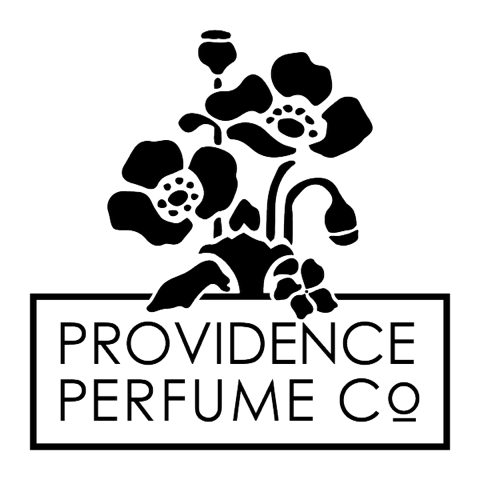
Peach and Apricot Tincture
My obsession has returned. Sometimes, it's pushed aside for other important daily tasks, but it never dissipates. I LOVE making tinctures for perfume! When teaching perfume courses, my students favorite part of the class is when we create a tincture. I've decided this is due to my overwhelming passion and tinctures benefits to perfumery I outline to the students. In addition, students feedback indicates they find making tinctures manageable and fun. Tinctures are easy to make, utilize imagination (can I tincture seaweed, and if so what will it smell like?) and easy to understand whereas blending accords and remembering which botanicals are base notes are decidedly less "fun" to many Introductory students.
The benefits to using tinctures as the alcohol base for botanical perfumes are numerous. Notice I stated "as the alcohol base." I recommend using tinctures as the perfumers alcohol for blending a perfume. I stress to the students that we are not creating a tincture to replace an essential oil or absolute (although one can tincture vanilla beans very successfully and use them as a replacement for vanilla absolute) we are more creating a subtle back note for the perfume by using the tinctured alcohol to blend.
The benefits to using tinctures in perfumes are as follows:
1. ORIGINALITY By using a tincture in your perfume you can put a highly original spin on your scent. Will anyone else be blending with your homemade squash blossom tincture? Doubtful. That unplaceable irresistible note you detect? Why it's my own New England blackberry leaf tincture!
2. FIXATION Many tinctures are created from botanical matter containing sugars and starches. These ingredients actually help a natural perfume last longer as they help trap scent molecules to the skin and slow evaporation. In addition, by using a tinctured alcohol to blend perfume we help extend a note throughout the drydown of the perfume. For example, it is notoriously hard to create a long lasting natural citrus perfume as citrus oils are top notes and evaporate quickly. If formulating a perfume using an orange tincture we are able to pull the citrus note through the length of the perfume and we can help extend the orange note through the mid and even base notes of the perfume as it dries down. I find this incredibly exciting.
3. PALETTE EXTENSION While we may not be able to source a natural blackberry essence, we can create one by tincturing freeze dried blackberries. The ability to create new aromas allows us to expand our perfumers palette.
Lilac Tincture


22 comments
I am so interested in trying this! I am assuming with fruits such as strawberries, one would use freeze dried for best results?
Hi Nicole,
Not all material needs to be perfectly dry when creating a tincture. I don’t recommend using dried flowers as their aroma is lacking. One can clover dry rose petals for example before adding them to alcohol. However, the greater the amount of water in the botanical material, and the more recharges done with the material, the greater the amount of water in the tincture which lowers the alcohol content. When using the tincture to make perfume one can experience separation between the oils and alcohol when the water content is too high. I have experienced this with some lilac tinctures for example.
In my experience drier material yields better, stronger results in less time.
What fun! I’m curious as to why you say that all material must be dried when you are tincturing? Flowers in particular lose much of their mojo when dried. I have been making medicinal tinctures for years, and have never run into trouble, in fact the quality is better with fresh herbs in my opinion. Alcohol is a preservative after all. However, when I am making an infused oil, water is most definitely the enemy and can certainly cause spoilage.
Anna, I’ve been trying several different ways on how to tincture the lilac samples I’ve collected during the blossom season. Unfortunately, I had a limited amount of harvest.
I’d tinctured the purple lilacs (syringa vulgaris strain) in Everclear alcohol for the past three weeks. Just strained out the alcohol, filtered it twice to remove all the green matter (perhaps rot, along with the tiny green bits that stick to the petals at plucking).
I ended up with a deep violet tincture, smell still reeks of alcohol. However, the green matter evaporated quickly due to almost all of the everclear filtered out – and I could clearly smell the “green” parts of the lilacs; the unappealing parts that don’t hold the lilac fragrance that we all hold dear to our hearts.
I’m assuming that if I evaporated all of the alcohol out of the purple liquid, it would leave a residue of the fragrance of lilac in a goop, oil, or whatever form it is in its purest form. Hopefully my theory proves correct.
From my experience, lilac fragrances are delicate when it comes to heat exposure. So I’m evaporating the alcohol in a patient, gradual way – at room temperature. To keep the bugs and dust out, I’ve placed the alcohol in a glass Bell jar; along with the metal screw-on lid – minus the removable top cover. In the cover’s place, I put a coffee filter to allow breathing and evaporation, with very tiny holes punched in everywhere.
Even fruit flies cannot get in; and dust is guaranteed to be kept out at the maximum efficiency. I hope!
If it works, I’ll chime right back in. If it doesn’t…. I’d just be too damn embarrassed to come back here and report it. So, cross your fingers… I’m crossing mine!
Do you ever evaporate the alcohol to get an absolute? If yes, how do you do it?